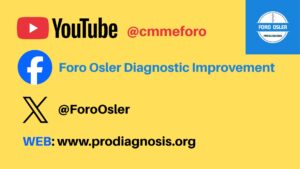Protection: a new meaning for the clinical practice
Is our model of clinical practice exhausted? What are going to be the next challenges for the clinical practice in this century? Medicine needs to recover the meaning of the practice…
A little bit of history:
First milestone: In its early beginnings already in Egypt or Greece, an event occurred that marked the origin of Medicine. The priests recognized their inability to calm the pain or cure simple processes invoking the gods, and yet some individuals appeared to earn a living, sometimes only with deduction and probably after seeing corpses in battles, solve problems opening abscesses, trepanning the brain or aligning bones. These were the first doctors, people offering their services for an earning, who sometimes suffered the hatred of relatives or the punishment of kings. They were the owners of the tools and the ointments.
Second milestone: The possibility of observing corpses either in battles or clandestine , perfectly described in Noah Gordon’s novel “The Physician”, allowed the beginning of the surgery. The doctors shared other activities such as the barbershop or were dentists, or vice versa. But the knowledge and the tools and the “means of production” were under his control. In these times the misery and the diseases spread by Europe and the Church and monasteries develop premises for the attention to dying or wounded of war, appearing hospital orders and the first palliative care units.
Third milestone: Populations grow and in Europe politicians see the need to protect the population suffering from diseases and then developed the first health systems. “Health” is considered as a right, once the water supply and sewage was ensured. Physicians begin to be salaried personnel, and the means of production are supplied by the state. It begins a coexistence and dependence where only the skill and knowledge remain as something typical of the doctor. Governments were now in charged for develop the healts services and the “public system” and the private coexisted.
Fourth milestone: therapeutic development. With the knowledge of the mechanism of
disease, similar to what happened in the Middle Ages with the knowledge of the anatomy, a new revolution started with an important discovering of new drugs and new medical procedures. In the last twenty years the main activity of clinical practice had been determined for the importance of the “treatment factor”. However, the importance of chronic diseases with a difficult therapeutic approach and high resource consumption are a situation difficult to handle. Public health is replaced by a promise to control the problem with expensive drugs, once the development of genetic analysis techniques allow the detection of the specific mutation. Now Chemichal and pharmaceutical companies impose their law. The doctor is even more alienated: he or she is not the owner anymore of the production or therapeutic tools.
The clinical practice is immersed in a “ghetto” in which doctor survives with the information from medical school. Disease is pursued as a target but other things such as a fall, severe uncontrolled allergy, pain during an examination, etc., are not seen like a problem.
Fifth and final milestone: Clinicians in the next future will be a professional who will know more and more the mechanism of the diseases. Expensive new drugs will be in the clinical environment, but some of them will be produced locally. But, what about the clinical practice? Some of the challenges will be: local results with patients should be analyzed, both when they were positive and negative. The physician will be a “global protector” of the patient and will guarantee aspects of clinical judgment and differential diagnosis and the concept of “system” and its influence in clinical practice will be addresed. In addition, the patient will see his doctor as the conducting line that will facilitate the path in all aspects related to his illness, and aspects of communication skills, empathy, information and real sense of concern will have a real value. The new professionals must be the best technically, but also those who perform their performance as a service to the human being. The loss of the means of production and the lack of benefit per act that were the basis of primitive medicine should not alienate doctors any more. We must regain a sense of direct service to society, in which the intermediaries (state, pharmaceutical companies, politicians) will own the means of production, but doctors will integrate a new role of support and protection for the patient.Lorenzo Alonso Carrión. Foro Osler


